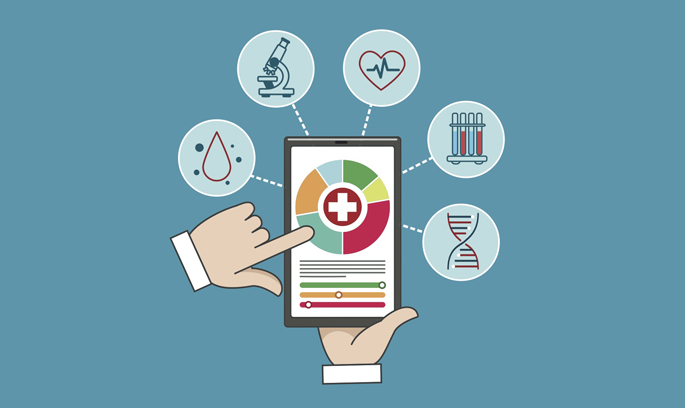Machine Learning
-

Model students: improving clinical decision-making
Vanderbilt investigators have devised a system to alert health IT teams to deteriorating performance in clinical prediction models. Read MoreDec 10, 2020
-

Wearable sensor algorithms powered by machine learning could be key to preventing runners’ injuries
A trans-institutional team of Vanderbilt engineering, data science and clinical researchers has developed a novel approach for monitoring bone stress in recreational and professional athletes, with the goal of anticipating and preventing injury. Using machine learning and biomechanical modeling techniques, the researchers built multisensory algorithms that combine data from lightweight, low-profile wearable sensors in shoes... Read MoreOct 28, 2020
-

$8.7 million DARPA grant advances AI-assisted CPS design work
A new, $8.7 million project—Design. R–AI-assisted CPS Design—involves pathbreaking work for the Defense Advanced Research Projects Agency as future cyber-physical systems will rely less on human control and more machine learning algorithms and artificial intelligence processors. Read MoreOct 4, 2020
-

$3.3 million project aims to transform grid management with risk metrics for renewables
The goal of the project—Risk-Aware Market Clearing—is a blueprint for an end-to-end, data-driven approach that balances cost and minimizes system-level risk. Market clearing is the process that keeps the supply level to the demand with no leftover of either. Read MoreJun 17, 2020
-

Artificial intelligence offers a chance to optimize COVID-19 treatment in international partnership
Jonathan Irish joins an international collaboration by deploying artificial intelligence to optimize COVID-19 treatment and vaccine development. Read MoreMay 29, 2020
-

Yin receives early investigator MERIT Award from NCI
Zhijun Yin, PhD, assistant professor of Biomedical Informatics at Vanderbilt University Medical Center, has received the National Cancer Institute’s Method to Extend Research in Time Award (or MERIT Award) for Early Stage Investigators. Read MoreMay 14, 2020
-

Vanderbilt engineers mine EMRs and clinical journals for novel disease associations and new research paths
A new tool developed by Vanderbilt engineers, in collaboration with clinical and informatic experts, can unearth novel co-morbidities from routinely collected, anonymized electronic medical records. Read MoreFeb 18, 2020
-

How to fake a medical record in order to mitigate privacy risks
In machine learning, generative adversarial networks (GANs) involve two artificial neural networks squaring off, one, the generator, trying to delude the other, the discriminator, into accepting synthetic data as real. Beyond their science and engineering applications, GANs can generate utterly convincing “photographs” of people who do not exist. Unrestricted use on a wide scale of... Read MoreNov 4, 2019
-

How to fake a medical record
Simulated electronic health records could avoid patient privacy risks and help speed discovery. Read MoreNov 4, 2019
-

AI maps routes to heart disease
Machine learning on unlabeled electronic health record data has shed light on the emergence of cardiovascular disease. Read MoreOct 7, 2019
-

Sorting patient messages automatically
Automated techniques can assist in understanding and managing growing volumes of messages sent through secure patient portals, Vanderbilt researchers found. Read MoreDec 20, 2017
-

Risky business
Vanderbilt investigators have developed hospital readmission models that may help prevent payment penalties to hospitals when patients are readmitted too soon after discharge. Read MoreApr 5, 2017
-

Investigators use machine learning to predict suicide risk
According to the Centers for Disease Control and Prevention (CDC), in 2013 there were 41,149 suicides in the U.S., making it the 10th leading cause of death that year. Among high school students in 2013, the CDC estimates that over the previous 12 months 2.7 percent had sometime made a suicide attempt resulting in injury, poisoning or overdose that required medical attention. Read MoreMar 9, 2017